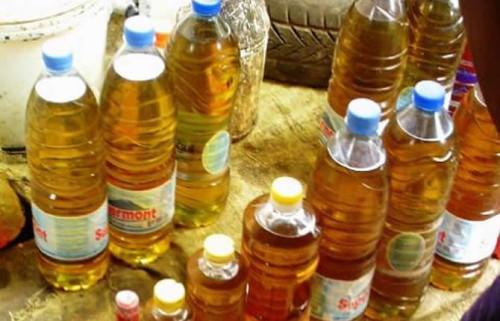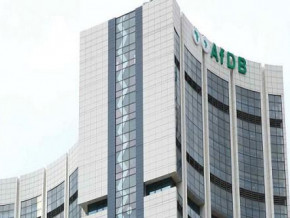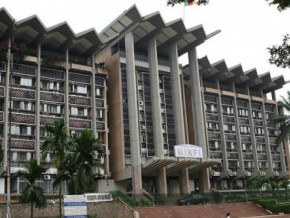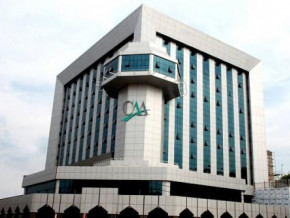
Cameroonian govt cracks down on sales of refined oil in bulk

(Business in Cameroon) - The Cameroonian government is taking action against sales of "bulk" refined oil, a cheap oil widely sold on the local market. Many believe this type of oil poses health risks to consumers.
In this wake, the Trade Minister, Luc Magloire Mbarga Atangana, sent a letter last September 19 to the palm oil refining industry saying “strict instructions have been given by top authorities for all actors [in the industry] to comply with food safety rules comprehensively, as well as the specific regulations applicable to each sector. Violators may face penalties under existing laws and regulations.”
“In the case of your sector, we are particularly concerned about the issue of bulk oils, the sale of which is prohibited because it poses serious health risks to consumers. I kindly request your utmost attention to this provision and invite you to comply with it, as sworn officers from various ministries and interested organizations will soon be deployed for this purpose," he said.
Sources within the palm oil industry have indicated that some palm oil refiners sell the oil themselves in bulk, an anti-competitive practice that enables them to dispose of stocks quickly through informal channels, reduce production costs, and even manipulate tax obligations. "Bulk oil comes from two sources. There are the small, under-equipped refineries that can't refine palm oil optimally. The result is poorly refined oil, often produced under dubious hygienic conditions and containing impurities. This untraceable product is generally marketed in makeshift, unlabeled containers. It is not unlikely that some of these containers have contained chemicals before being used to package bulk oil. This represents a serious risk for consumers," said a source who requested anonymity.
An informal oil
"There is also 'bulk' oil from large refineries themselves. It could be excess production when the refinery's storage tanks are already full. This excess is then sold as 'bulk.' It could also be a deliberate choice by the industrial refinery to sell part of its production as 'bulk.' With this product, there are no packaging and labeling costs, as well as VAT, since this oil is generally not declared and is sold through informal channels. This type of oil is very cheap, allowing not only significant cost savings in production but also quick cash flow from selling their stock. Such practices are well-known to the authorities, who have, for many years, shown administrative tolerance in the name of fighting high living costs," the source continued.
Indeed, it is hard to believe that the government's specialized agencies, whose agents patrol the country's markets daily, have for years failed to notice the presence of refined oil "in bulk" on market shelves. This sort of short-sightedness on the part of public authorities is matched only by the carelessness of consumers themselves. Unlike refined oils that comply with regulatory standards, "bulk" oil is accessible to all budgets. "Currently, a liter of refined oil varies between CFA1,350 and CFA1,500 whereas 1.5 liters of 'bulk' costs CFA1,300 ", a housewife in Yaoundé said, overlooking the insecurity associated with this product.
According to some industry players, "bulk" oil is also used by certain industrialists as a market control tactic. With the stiff competition in the refined oil market, many refiners rely on "bulk" oil to deplete their raw material stocks. This allows them to avoid losing their monthly palm oil quotas allocated by the Regulatory Committee for the Oilseed Sector to competitors. Due to the weak domestic production of palm oil in relation to the growing capacity of industrial players, the Cameroonian government not only permits annual imports but has also instituted a quota policy for supplying raw materials to processing units. This practice is increasingly criticized by some operators who see it as the formalization of unfair competition among industrialists.
Mags frontpage
- Most read 7 days
- shared 1 month
- read 1 month






























